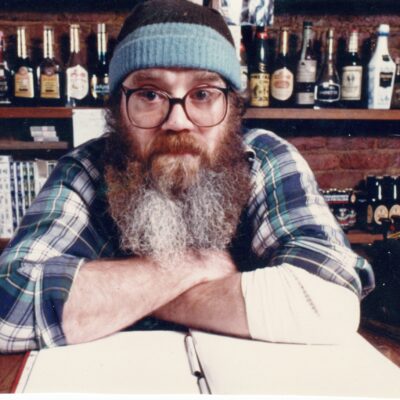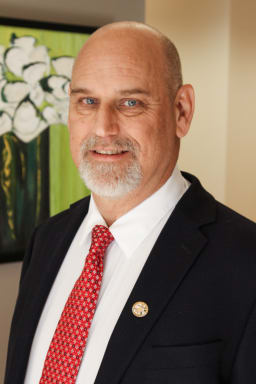As the country faces what could be the worst financial crisis since the Great Depression, UVA Darden School of Business students launched a new student-run entrepreneurial society. Its goal: increase the flow of successful businesses started by the University community. By facilitating partnerships and providing mentors to student entrepreneurs, “E*Society” founders say that this organization will help move ideas from a notepad to reality.
|
Crisis schmisis. “The entrepreneurial world is independent from these macro problems,” says Ian Ayers. |
Ian Ayers, one of the founders of the E*Society, says this effort is a first of its kind and is intended to “bring together people with different academic interests and start the discussion on how to make one idea come to fruition.” Ayers and fellow founder Sarah Crews decided to open the discussion to the Engineering School and recruited Mark Hanson, a self-professed cubicle-adoring engineer, who became the third member of the team. “It’s so important to include engineers,” because oftentimes they have the ideas, but lack business skills, says Ayers.
At the kick-off event on September 24, the “Jeopardy” theme song resonated throughout a room in Newcomb Hall as a crowd of more than 100 students, professors, local entrepreneurs and venture capitalists gathered to create alliances and share ideas. As an example, Darden student Charles “Chip” Ransler gave a presentation about the business he started with classmate Manoj Sinha. The duo started Husk Power Systems, which supplies electricity to rural villages in India.
|
Only between four and eight faculty members go through the patent process each year. “They are faculty, so they have classes to teach and if they take this on, they are going to have two full-time jobs,” says Robert S. MacWright, CEO of the Patent Foundation. |
With 300 patents in process at the moment, the Patent Foundation at UVA is the prime example of the fecundity of the University’s engineering and high-tech sector. Yet the nature of a business venture has its drawbacks. Robert S. MacWright, executive director and CEO of the Patent Foundation, says new inventors often shy away from the daunting task of starting a business and only four to eight faculty actually decide to begin the process each year. “They are faculty, so they have classes to teach and if they take this on, they are going to have two full-time jobs,” he says.
A few years ago, the Patent Foundation, in an effort to help faculty inventors fund their own companies, created The Jefferson Corner Group, an angel fund designed to invest in new technologies. MacWright says the fund had to be created to increase the flow of capital locally. “I’m happy to say that the fund has invested in two faculty inventions so far,” he says, and considers it a success, given the current Wall Street panic.
“The entrepreneurial world is independent from these macro problems,” says Ayers, referring to the current crisis. He believes that even if it’s not a good time to look for jobs, it’s a good time to take risks. “Everyone needs to find their groove and passion in what they are doing and the economy will settle too.”
C-VILLE welcomes news tips from readers. Send them to news@c-ville.com.






